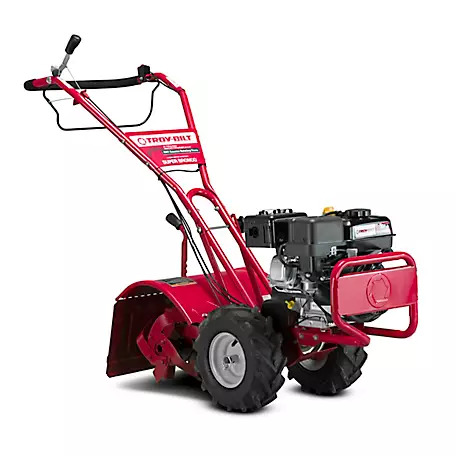Agriculture is one area critical to meeting the needs of the increasing population; hence, it is necessary to manage it effectively and sustainably. Businesses involved in modern farming have seen advanced tools that enable efficiency, and one such tool is the tractor supply tiller. These flexible machines have many advantages, so they can be considered vital by the agricultural companies concerned.
This article will discuss the role of this tool in agriculture practices.
Enhancing Soil Preparation with Tractor Supply Tiller
Soil preparation is a key requirement for farming, and a tractor supply tiller is designed to optimize this crucial step.
Improving Soil Aeration and Texture
Tractor supply tiller mixes the compacted soil effectively, creating an ideal environment for seed germination and root growth. Their strong construction enhances proper aeration and the supply of water and nutrients to the earth. The tillers offer a competitive advantage when businesses ensure crops grow healthy with well-spaced branches.
Reducing Manual Labor
Modern tillers help farm managers condition large pieces of land without manual intervention. This advantage allows businesses to afford reduced operating expenses and invest in other key farming factors, such as water supply and pest eradication. However, for large-scale farming, a tractor supply tiller offers the advantages of scale and profitability.
Supporting Diverse Agricultural Applications with Tractor Supply Tiller
This multipurpose machinery can be used in virtually all farming practices, from gardening and intensive vegetable growing to large-scale farming.
Preparing Fields for Planting
The features provided by a tiller make it easier to work in the field where all types of crops are to be planted. The tillers are remarkably efficient for the initial cultivation of virgin land and for reshaping old-cropped lands. The facility to charge a technique that successfully adapts to different types of soils means that they efficiently transition between one crop and the next, which can be instrumental for businesses that expect to cater to other crops.
Enhancing Precision in Sustainable Farming
Precision agriculture is slowly rising, and tractor supply tillers are key to this change. Thus, the practice of tillers contributes to practical approaches that directly correspond to the existing environmental legislation. This position positions business organizations to better address market demand for farming sustainability without compromising production.
Driving Operational Efficiency and Growth with Tractor Supply Tiller
Operational efficiency equals a higher growth rate and bottom line for agricultural businesses. A tractor supply tiller also helps with this in several ways.
Durability and Cost-Effectiveness
Because tillers made for tractor supply are long-lasting, they are a long-term investment for farmers and people in agricultural businesses. Their sturdiness and frequent application cut the costs of frequent maintenance in the long run. This ensures the reliability of the fields and that business institutes consistently perform in the field, minimizing instances of work stoppages.
Aligning with Mechanized Farming Trends
A tractor supply tiller is a modern farming mechanization tool that ensures businesses closely tailor their operations to contemporary agriculture trends. Thus, using these tools, enterprises improve their market competitiveness, optimize manufacturing processes, and attract possible partnerships if they have technologically advanced production.
Conclusion
Tractor supply tillers have been helpful in agriculture since they enhance soil preparation, capability, and efficiency in various operations. Current advanced farming practices reveal that they are essential equipment for any company seeking to operate in a competitive market. By acquiring tractor-supply tillers, agricultural businesses are prepared to meet the sector's growing needs today and in the future.


